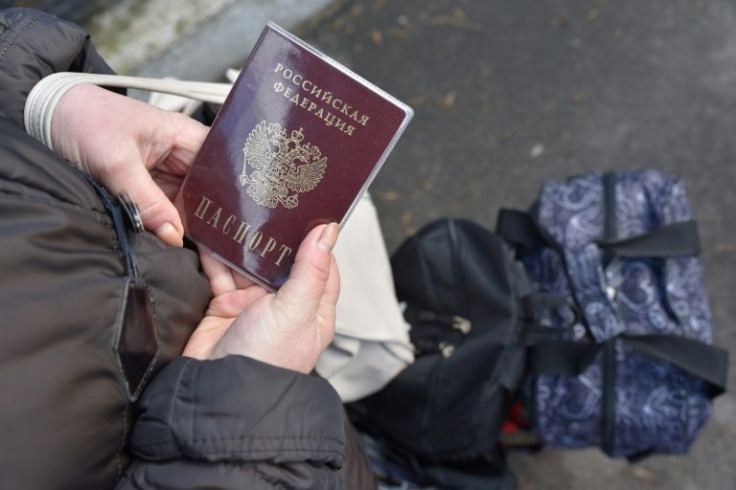EU Says It Won't Recognize Russian Passports Issued In Occupied Regions Of Ukraine, Georgia
KEY POINTS
- The move aims to set out a unified agenda to develop common visa policies and safeguard EU member states' security
- The EU termed the issuance of Russian passports as a tactic of infringement of international law and Ukraine's territorial integrity
- The ban also extends to Russian passports issued in the Georgian territories of Abkhazia and South Ossetia
In a move that will block people from Russian-occupied or recognized territories in Ukraine and Georgia from obtaining a visa or crossing the borders of the Schengen Area, the European Union (EU) has announced that it will not recognize Russian passports issued in these regions.
"This decision is a response to Russia's unprovoked and unjustified military aggression against Ukraine and Russia's practice of issuing Russian international passports to residents of the occupied regions. It also follows Russia's unilateral decision to recognize the independence of the Georgian territories of Abkhazia and South Ossetia in 2008," the European Council said in a statement issued Thursday.
With Russian passports issued in these regions already not recognized by several European states, the statement said the EU decision aims to set out a unified agenda to develop common visa policies and safeguard the security of EU member states.
The move still needs to be formally approved by the EU Parliament and EU member states, according to the Moscow Times.
Pitching it as a humanitarian move, Russia has, for years, strategically used the issuance of its passport as a tool to extend its authority and eventual military intervention in contested regions of Georgia and Ukraine.
Since its illegal annexation of Crimea in 2014, Russia has been issuing passports to the residents of the peninsula.
Russian President Vladimir Putin then signed a decree in April 2019 extending the practice of issuing its international passports to the two Moscow-backed, separatist-controlled and self-proclaimed republics of Donetsk and Luhansk in southeastern Ukraine.
Russian news agency TASS said in a report in June that more than 800,000 residents of Donetsk and Luhansk had been issued with Russian passports using a simplified procedure.
Putin signed a similar decree in May extending the scheme of simplifying the process of acquiring Russian citizenship and passport to residents of Ukraine's Kherson and Zaporizhzhia regions, which were occupied by Moscow after the Feb. 24 invasion.
Russia annexed the four partially Russian-occupied regions of Ukraine in late September, following a sham referendum. The move was widely condemned and rejected as "illegal and meaningless."
Terming the issuance of Russian passports as a tactic of infringement of international law and Ukraine's territorial integrity, sovereignty and independence, the EU said its move will cover two Kremlin-controlled areas of Georgia as well.
Georgia has also accused Moscow of attempting to annex two of its provinces — Abkhazia and South Ossetia. Voicing its protest, Tbilisi said in July that 150,000 Abkhazians had been awarded Russian passports within a month.

© Copyright IBTimes 2025. All rights reserved.






















